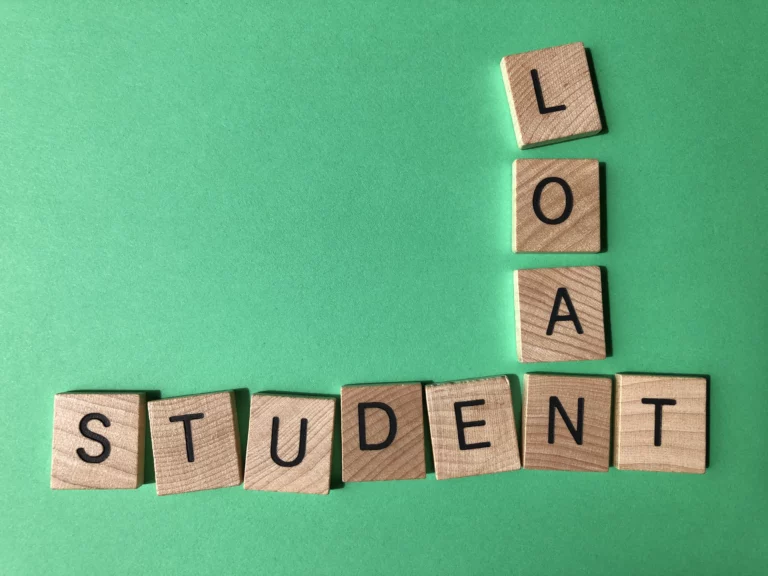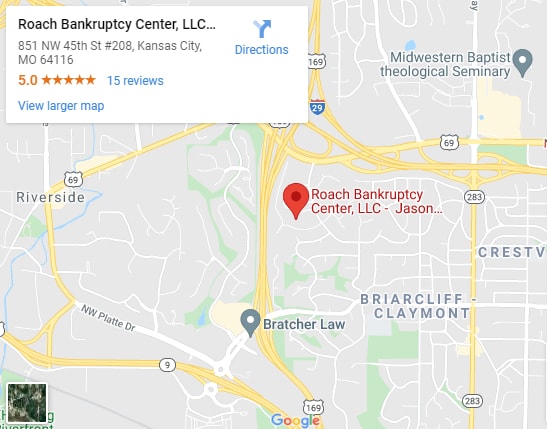Handle your student loans with the help of our bankruptcy lawyers
The burden of student loan debt has become a pressing issue for many individuals in Kansas City, Missouri, as they struggle to manage their finances and seek relief from overwhelming debt. While bankruptcy is often seen as a potential solution, treating student loans in bankruptcy can be complex and challenging. In this article, we will explore various ways to deal with student loans in bankruptcy, specifically within the context of Kansas City, Missouri.
One reliable resource to navigate the complexities of bankruptcy and student loans is the Roach Bankruptcy Center, LLC. As a bankruptcy law firm serving the Kansas City area, they provide legal guidance and assistance to individuals facing overwhelming debt, including student loan obligations. With their extensive knowledge of local bankruptcy laws and commitment to client advocacy, Roach Bankruptcy Center, LLC offers a free initial consultation for their comprehensive services tailored to each client’s unique financial situation.
By addressing the specific challenges associated with student loans in bankruptcy, Roach Bankruptcy Center, LLC can help individuals explore all available options and make informed decisions. Whether it is understanding the eligibility criteria for different bankruptcy chapters or navigating the complexities of adversary proceedings, their experienced attorneys are equipped to guide clients through the process.
Furthermore, Roach Bankruptcy Center, LLC recognizes that bankruptcy may not be the only solution for student loans. They also provide valuable insights and alternatives such as loan forgiveness programs, loan consolidation and refinancing, and negotiating with lenders. By offering an efficient approach to debt relief, they empower individuals to make informed choices that align with their long-term financial goals.
What is the Treatment of Student Loans in Bankruptcy?
The treatment of student loans in bankruptcy is a complex and challenging issue that borrowers in Kansas City, Missouri, must navigate when seeking debt relief. While bankruptcy can offer a fresh start for many types of debt, student loans are generally not dischargeable through bankruptcy unless specific criteria are met. However, there are still avenues for borrowers to explore.
Chapter 7 bankruptcy (which involves liquidating assets to repay debts) may provide relief if the borrower can prove “undue hardship” in repaying their student loans. That is a high standard to meet and often requires filing an adversary proceeding to demonstrate the necessary hardship.
Chapter 13 bankruptcy, on the other hand, offers a repayment plan that can provide relief for borrowers struggling with student loans. It allows for debt restructuring and consolidation (including student loans) into a manageable repayment plan spanning three to five years.
Alternative options to bankruptcy also exist. Loan forgiveness programs, such as those offered by the federal government, may provide relief for borrowers who qualify based on their profession, income, or public service. Loan consolidation and refinancing can be considered to simplify payments or potentially obtain more favorable loan terms.
Navigating the complexities of student loans in bankruptcy requires the prowess of a bankruptcy attorney who understands the local laws and regulations in Kansas City, Missouri. While discharging student loans in bankruptcy is challenging, understanding the treatment of student loans and seeking professional advice can lead to effective strategies for managing student loan debt and achieving financial stability.
What are the Bankruptcy Options for Student Loans in Kansas City, Missouri?
Bankruptcy options for student loans in Kansas City, Missouri, includes the following:
- Chapter 7 Bankruptcy: Chapter 7 bankruptcy, also known as liquidation bankruptcy, allows individuals to discharge certain types of debts, including student loans, under specific circumstances. However, discharging student loans in Chapter 7 bankruptcy requires proving “undue hardship” through an adversary proceeding. Meeting this standard can be challenging, as it typically involves demonstrating that repaying the student loans would cause severe financial hardship that persists for an extended period.
- Chapter 13 Bankruptcy: Chapter 13 bankruptcy, also referred to as reorganization bankruptcy, involves creating a repayment plan to pay off debts over a period of three to five years. While student loans are not dischargeable in Chapter 13 bankruptcy, the repayment plan can provide relief by allowing borrowers to restructure their debts and make affordable monthly payments based on their income and expenses.
- Adversary Proceedings: In both Chapter 7 and Chapter 13 bankruptcy, borrowers can file an adversary proceeding to seek the discharge of their student loans. An adversary proceeding is a separate lawsuit within the bankruptcy case, specifically focused on the student loans. It requires demonstrating “undue hardship” and providing evidence to support the claim. Adversary proceedings can be complicated and may require the assistance of an experienced bankruptcy attorney.
It’s important to note that discharging student loans through bankruptcy is challenging and generally requires proving “undue hardship.” However, exploring bankruptcy options with the guidance of a knowledgeable attorney can help borrowers understand the eligibility criteria, navigate the legal processes, and determine the best course of action based on their unique financial circumstances.
What are the Alternatives to Bankruptcy for Dealing with Student Loans?
When facing student loan debt in Kansas City, Missouri, individuals have alternatives to consider before pursuing bankruptcy. These alternatives can provide practical solutions for managing student loan debt:
- Loan Forgiveness Programs: Various loan forgiveness programs exist at the federal level that can provide relief for borrowers struggling with student loan debt. These programs are often based on factors such as income, profession, or public service. Examples include Public Service Loan Forgiveness (PSLF), Teacher Loan Forgiveness, and Income-Driven Repayment (IDR) forgiveness programs. Each program has its own eligibility criteria and requirements, so it’s essential to research and determine if you qualify.
- Loan Consolidation and Refinancing: Consolidating or refinancing student loans can be a viable option to simplify payments and potentially obtain more favorable terms. Loan consolidation involves combining multiple loans into a single loan, often with a fixed interest rate. On the other hand, refinancing is obtaining a new loan with different terms, such as a lower interest rate or extended repayment period. Remember, by refinancing federal student loans into private loans, borrowers may lose certain federal loan benefits and protections.
- Negotiating with Lenders: Communicating with loan servicers and lenders directly can sometimes lead to alternative repayment options or temporary relief. That may include loan modification, forbearance, or deferment. These options can provide borrowers with temporary relief from making payments or result in more manageable repayment terms. However, it’s crucial to understand the potential impact on the overall loan balance and long-term financial obligations before pursuing these options.
Exploring these alternatives to bankruptcy can provide potential relief for borrowers struggling with student loans. It’s critical to thoroughly research and consider advantages, disadvantages, and eligibility criteria related to each option to make an informed decision that aligns with your financial goals and circumstances.
Reach Out to Our Kansas City Bankruptcy Attorneys Today!
Dealing with student loans in bankruptcy can be a complex and challenging endeavor, particularly for individuals in Kansas City, Missouri. It is essential for borrowers to understand the treatment of student loans in bankruptcy and consider all available options to achieve financial stability and relief.
In navigating the complexities of bankruptcy and student loans, seeking legal advice and assistance is imperative. Roach Bankruptcy Center, LLC is a skilled bankruptcy law firm in Kansas City, Missouri, equipped with experienced attorneys who provide legal guidance and assistance to individuals facing overwhelming debt, including student loans.
By contacting Roach Bankruptcy Center, LLC, borrowers can benefit from their extensive knowledge of local bankruptcy laws and commitment to client advocacy. Their team can provide personalized assistance, helping borrowers explore all available options and make informed decisions based on their unique financial circumstances. From understanding eligibility criteria to navigating adversary proceedings and considering alternatives, their attorneys offer comprehensive support for the whole process.
The path to managing student loan debt in Kansas City, Missouri, requires careful consideration and legal guidance. We encourage individuals struggling with overwhelming student loan debt to take action and call Roach Bankruptcy Center, LLC, for a free initial consultation. By reaching out to their dedicated team, borrowers can find ways to deal with student loans in bankruptcy, empower themselves to make informed decisions, and work towards a brighter financial future.



